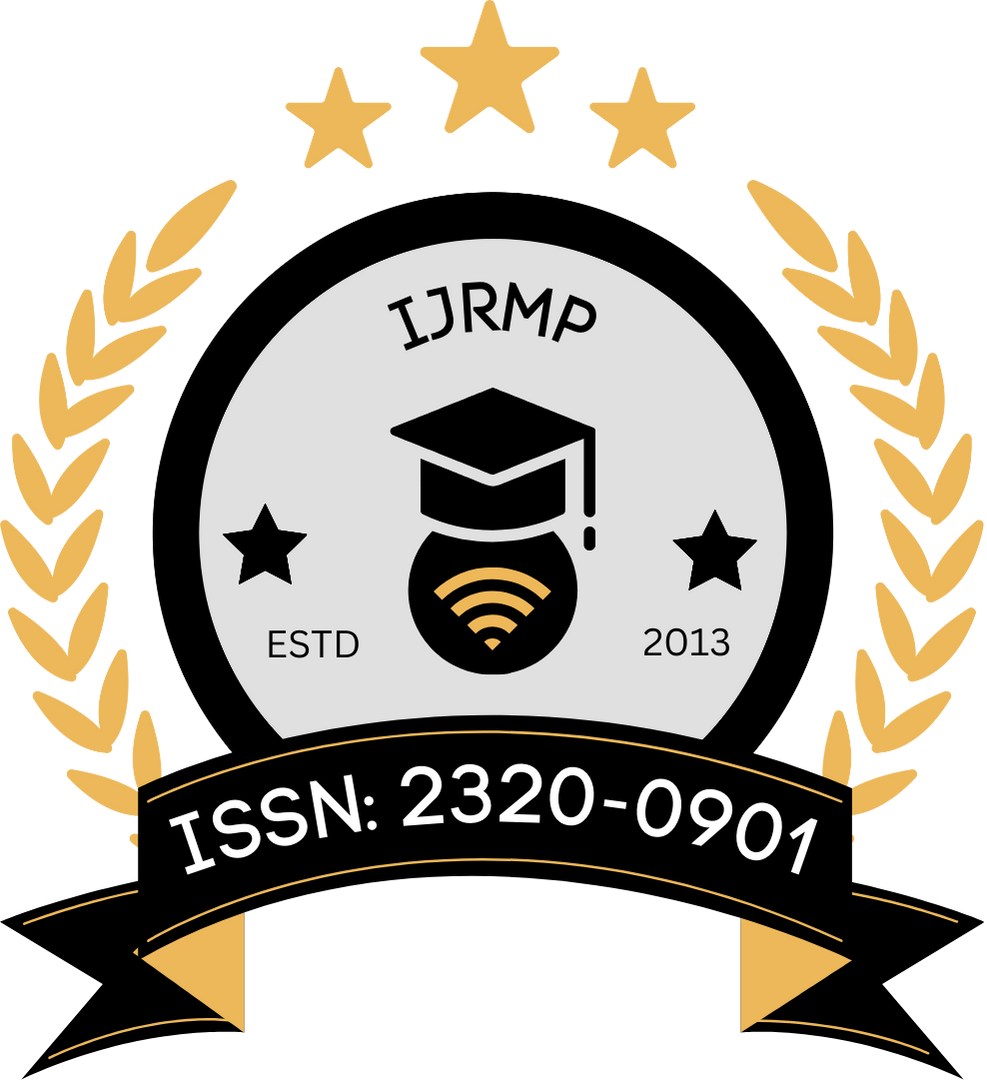![]()
DOI: https://doi.org/10.63345/ijrmp.v12.i6.2
Karthik Narayanan
Independent Researcher
Tamil Nadu, India
Abstract
The human gastrointestinal (GI) tract hosts an extensive and diverse community of microorganisms known as the gut microbiome. Recent advances in microbiology and molecular biology have revealed that these microbial communities play a pivotal role in the regulation of host immunity, metabolism, and barrier function. Dysbiosis—a disruption in the natural composition of the gut microbiota—has been implicated in various gastrointestinal diseases, including inflammatory bowel disease (IBD), irritable bowel syndrome (IBS), colorectal cancer, and Clostridioides difficile infection. Microbiome therapy, which includes approaches such as probiotics, prebiotics, fecal microbiota transplantation (FMT), and novel bacteriotherapy strategies, has emerged as a promising intervention for restoring microbial balance and managing gastrointestinal pathologies. This manuscript reviews the potential of microbiome therapy in the management of GI diseases, providing a detailed literature review up to 2021, outlining the methodology used in recent clinical and experimental studies, summarizing the results of these interventions, and discussing the implications and future directions for clinical practice. The evidence presented suggests that while microbiome therapies show considerable promise, challenges related to standardization, long-term safety, and regulatory approval must be addressed before these therapies become mainstream.
Keywords
Microbiome, Gastrointestinal Diseases, Therapy, Dysbiosis, Probiotics, Fecal Microbiota Transplantation, Bacteriotherapy
References
- https://www.google.com/url?sa=i&url=https%3A%2F%2Fwww.healthdirect.gov.au%2Fdigestive-system&psig=AOvVaw31yS51Y4Lsu7_JaYjsyqWx&ust=1741888220822000&source=images&cd=vfe&opi=89978449&ved=0CBQQjRxqFwoTCNCvpreNhYwDFQAAAAAdAAAAABAO
- https://www.google.com/url?sa=i&url=https%3A%2F%2Flink.springer.com%2Fchapter%2F10.1007%2F978-981-96-0259-9_13&psig=AOvVaw3lizOB6Rvf9DAZ4gpk9uxA&ust=1741888392305000&source=images&cd=vfe&opi=89978449&ved=0CBQQjRxqFwoTCOCUvo6OhYwDFQAAAAAdAAAAABAE
- Arumugam, M., Raes, J., Pelletier, E., Le Paslier, D., Yamada, T., Mende, D. R., … & Bork, P. (2011). Enterotypes of the human gut microbiome. Nature, 473(7346), 174–180.
- Belkaid, Y., & Hand, T. W. (2014). Role of the microbiota in immunity and inflammation. Cell, 157(1), 121–141.
- Cani, P. D., & Delzenne, N. M. (2009). The role of the gut microbiota in energy metabolism and metabolic disease. Current Pharmaceutical Design, 15(13), 1546–1558.
- Clemente, J. C., Ursell, L. K., Parfrey, L. W., & Knight, R. (2012). The impact of the gut microbiota on human health: an integrative view. Cell, 148(6), 1258–1270.
- Cryan, J. F., & Dinan, T. G. (2012). Mind-altering microorganisms: the impact of the gut microbiota on brain and behaviour. Nature Reviews Neuroscience, 13(10), 701–712.
- Falony, G., Joossens, M., Vieira-Silva, S., Wang, J., Darzi, Y., Faust, K., … & Raes, J. (2016). Population-level analysis of gut microbiome variation. Science, 352(6285), 560–564.
- Ghosh, S., & Sarma, S. (2018). Probiotics, prebiotics, and synbiotics: gut and beyond. In Advances in Probiotics and Prebiotics (pp. 47–70). Academic Press.
- Hamer, H. M., Jonkers, D., Venema, K., Vanhoutvin, S., Troost, F. J., & Brummer, R. J. (2008). Review article: the role of butyrate on colonic function. Alimentary Pharmacology & Therapeutics, 27(2), 104–119.
- Khor, B., Gardet, A., & Xavier, R. J. (2011). Genetics and pathogenesis of inflammatory bowel disease. Nature, 474(7351), 307–317.
- Kundu, P., Blacher, E., Elinav, E., & Pettersson, S. (2017). Role of the gut microbiome in human health and disease: an introduction for clinicians. The American Journal of Gastroenterology, 112(2), 197–207.
- Li, J., Li, F., Zhou, Y., Liu, X., & Zhang, C. (2016). Fecal microbiota transplantation for Clostridium difficile infection: the current status and future perspectives. Expert Review of Anti-infective Therapy, 14(4), 359–368.
- Ott, S. J., Musfeldt, M., Wenderoth, D. F., Hampe, J., Brant, O., Folsch, U. R., … & Schreiber, S. (2004). Reduction in diversity of the colonic mucosa-associated bacterial microflora in patients with active inflammatory bowel disease. Gut, 53(5), 685–693.
- Quigley, E. M. M. (2017). Prebiotics and the gastrointestinal microbiota. Gut Microbes, 3(4), 291–296.
- Sanders, M. E., Merenstein, D. J., Reid, G., Gibson, G. R., & Rastall, R. A. (2013). Probiotics and prebiotics in intestinal health and disease: from biology to the clinic. Nature Reviews Gastroenterology & Hepatology, 10(9), 491–502.
- Schirmer, M., Smeekens, S. P., Vlamakis, H., Jaeger, M., Oosting, M., Franzosa, E. A., … & Xavier, R. J. (2016). Linking the human gut microbiome to inflammatory cytokine production capacity. Cell, 167(4), 1125–1136.e8.
- Schnabl, B., & Brenner, D. A. (2014). Interactions between the intestinal microbiome and liver diseases. Gastroenterology, 146(6), 1513–1524.
- Shreiner, A. B., Kao, J. Y., & Young, V. B. (2015). The gut microbiome in health and in disease. Current Opinion in Gastroenterology, 31(1), 69–75.
- Smits, L. P., Bouter, K. E., de Vos, W. M., Borody, T., & Nieuwdorp, M. (2013). Therapeutic potential of fecal microbiota transplantation. Gastroenterology, 145(5), 946–953.
- Sonnenburg, E. D., & Bäckhed, F. (2016). Diet–microbiota interactions as moderators of human metabolism. Nature, 535(7610), 56–64.
- Turnbaugh, P. J., Ley, R. E., Hamady, M., Fraser-Liggett, C. M., Knight, R., & Gordon, J. I. (2007). The human microbiome project: exploring the microbial part of ourselves in a changing world. Nature, 449(7164), 804–810.
